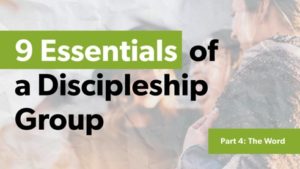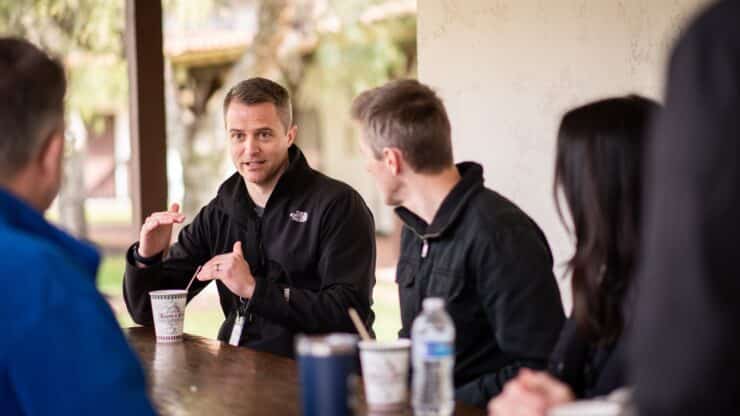A Wealth of Generosity

Do you consider yourself a generous person with your finances? Think about that question for a moment. As you do, allow me to offer a definition for generosity; to give more than is necessary or expected.
So, by that standard, are you generous? I think most of us admire generosity as a virtue. We even have intentions to be generous. We desire to give more to a neighbor in need. We want to give a tithe to support our local churches. We love the thought of helping finance a missionary’s endeavors. But, sometimes our generosity gets stuck in the realm of intention and never makes it to reality.
Why is that? Why does our generosity lack real-world action? The easiest culprit to blame for our lack of follow-through is our bank account. I mean, if we just had more cheddar in the bank, then generosity would be easy. Right?
Not necessarily. In 2 Corinthians 8, Paul addresses a church that had both the intentions and the resources to be generous. The Corinthian congregation had promised to send a large offering to help impoverished believers in Jerusalem. But, somehow they had been sidetracked and never followed through on their commitment. So, Paul writes to them a year later to remind them of their pledge and their opportunity to show generosity to this needy church.
The angle Paul takes to encourage generosity is by sharing an example of some other believers’ generosity. Specifically, he references a group of churches in the region of Macedonia.
“We want you to know, brothers, about the grace of God that has been given among the churches of Macedonia, for in a severe test of affliction, their abundance of joy and their extreme poverty have overflowed in a wealth of generosity on their part.”
2 Corinthians 8:1-2
Did you notice that there’s a lot of polarizing language in those verses?
He says that these believers in Macedonia were in a severe test of affliction and yet they had an abundance of joy. He also says that their extreme poverty overflowed into a “wealth of generosity.”
So, let’s get this right. . . they have severe affliction and yet an abundance of joy? They are in extreme poverty but display a wealth of generosity? What in the world is wrong with these people?
Paul continues in verses 3 and 4:
“For they gave according to their means, as I can testify, and beyond their means, of their own accord, begging us earnestly for the favor of taking part in the relief of the saints—”
Paul says they gave above even what they could afford. They went so far as to beg them for the opportunity to take part in giving. Who are these people? Are they Christian mutants? Are they even real? What is the secret to their ridiculous generosity?
“… and this, not as we expected, but they gave themselves first to the Lord and then by the will of God to us.”
So, here we find the key to their generosity. Not a bank account overflowing with funds, but lives surrendered to Christ. Giving financially came naturally because they had already given themselves. Their plans, their minds, their jobs, their possessions, their abilities, and their finances were already surrendered to the authority of Jesus. So, when the opportunity came to help another group in need, they just expressed their surrendered lives through generosity.
Now, this can be a complete paradigm shift for us when it comes to managing our financial resources. We naturally view everything in our life from the position of ownership. This house is mine. This job is mine. This money is mine. These stocks are mine.
When we have an ownership mentality, then our discernment process for giving looks like this:
- Do I want to give my money toward this need?
- Do I want to use my resources to invest in this kingdom endeavor?
- Do I feel that this person is worthy of help?
It’s easy to see how such a way of thinking will limit our generosity at best or completely squash it at worst.
The Macedonian believers had a drastically different decision-making process. In reality, the choice to give or not to give was not theirs to make. Instead, that choice was made higher up the chain by their Lord. They had previously surrendered their decision-making rights. They were simply the managers who transferred the funds to the designated location. And this surrendered lifestyle manifested itself in extravagant generosity.
So, what do we do with this example from the Macedonian believers? First, I think we should recognize the reality that our struggles with generosity are linked more to our unsurrendered hearts than our low bank accounts. Our desire for control is actually preventing us from experiencing the joy of giving and others from being blessed.
Next … and this is the hard part … we must surrender ourselves to the Lord. Rather than focusing on increasing generosity … increase surrender. Decrease control. Release decision making. Push authority further up the chain of command. Change our question from, “Do I want to give?” to “Jesus, do You want me to give?” As we make this shift away from ownership to surrender, we will begin to see a “wealth of generosity” overflow in our lives.
This post originally appeared at: A Wealth of Generosity — The Bonhoeffer Project
If you have enjoyed reading this, please consider joining our email list!











